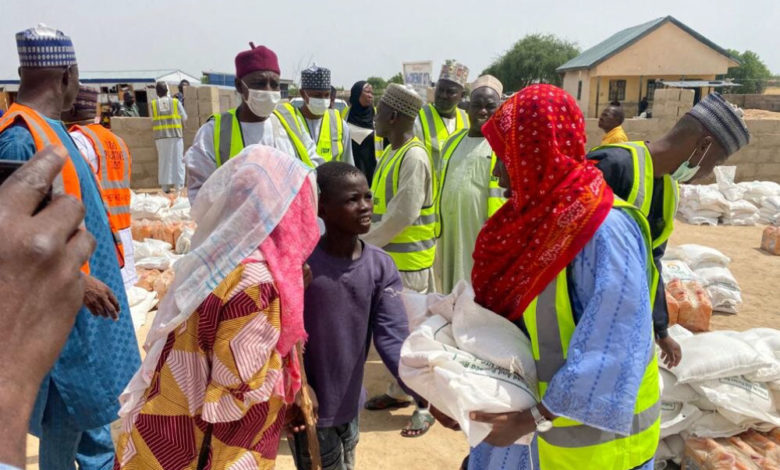FG raises alarm over attacks on humanitarian workers in Nigeria
The Federal Government of Nigeria has raised the alarm over continuous attacks on humanitarian workers in the country. Addressing a press conference in Abuja on Monday to mark World Humanitarian Day 2024, under the theme ‘ActForHumanity,’ the Federal Commissioner of the National Commission for Refugees, Migrants and Internally Displaced Persons (NCFRMI), Tijani Ahmed, said this […]

FILE PHOTO: humanitarian workers
The Federal Government of Nigeria has raised the alarm over continuous attacks on humanitarian workers in the country.
Addressing a press conference in Abuja on Monday to mark World Humanitarian Day 2024, under the theme ‘ActForHumanity,’ the Federal Commissioner of the National Commission for Refugees, Migrants and Internally Displaced Persons (NCFRMI), Tijani Ahmed, said this year’s campaign addresses the alarming rise in attacks on humanitarian workers and civilians.
“In Nigeria, humanitarian workers have frequently found themselves in the crossfire of non-state armed groups. Between 2020 and 2024, there have been 49 reported incidents affecting 79 humanitarian workers.
“These include the tragic killing of an aid worker from Médecins du Monde, the wounding of a UN pilot, and the attack on the United Nations Aid Facility in Borno State, which resulted in the deaths of at least 20 internally displaced persons and forced aid workers to flee for safety.
- Nollywood actress narrates ‘life-threatening’ incident at Lagos store
- Olympics: We had no support from govt during preparations – Nigerian athlete
“In 2024 alone, no fewer than 26 humanitarian workers in Nigeria have been kidnapped, ambushed, or assaulted while carrying out their duties,” he lamented.
Ahmed said these attacks are not just crimes against individuals but are blatant violations of international humanitarian law.
The Geneva Conventions, to which all African nations are signatories, stipulate that the intentional targeting of humanitarian workers is a war crime. Such acts violate the core principles of humanity, neutrality, impartiality, and independence that guide humanitarian action.
“These heinous acts not only endanger the lives of those who are dedicated to helping others but also violate the very principles of humanity that underpin our global commitment to peace and justice,” he said.
The NCFRMI boss therefore called for the strict enforcement of international humanitarian law in Nigeria, adding that: “Today, I call upon all stakeholders to intensify our efforts to protect humanitarian workers and civilians in conflict zones.
“We must also ensure that our legal frameworks are robust enough to prosecute those who commit such violations and end the cycle of impunity as the protection of humanitarian workers and civilians is a moral imperative.”
